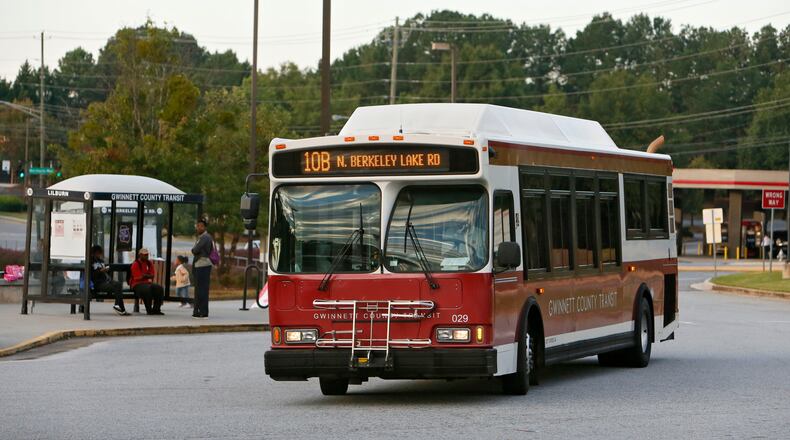In an annual meeting with her county’s legislative delegation on Thursday, Gwinnett Commission Chairman Charlotte Nash made three things clear.
For one, she does want to expand Gwinnett's transit offerings, but she doesn't yet know what type of transit that might entail.
Second, she still hopes to have a countywide referendum this fall on whatever kind of expansion is arrived upon.
And, finally, she wants that vote to succeed — whatever form it takes.
“We want to make sure that whatever goes forward passes,” Nash said during the meeting at Gwinnett Historic Courthouse. “That’s the simple answer. If we put something out there and it fails, that typically makes you go backwards on issues.”
The presentation by Nash and county Department of Transportation director Alan Chapman was just one in a full morning of pitches to Gwinnett’s state representatives and senators. Officials from the county school system, Georgia Gwinnett College and the county health department were among other speakers.
But if the number of questions they asked are any indication, the transit and transportation discussion appeared to draw the most interest from legislators.
They inquired about the comprehensive transit planning study that the county hopes to wrap up early next year. The study will ultimately guide what kind of transit expansions may be most feasible (and palatable) for county residents and shape the Nov. 2018 referendum that Nash has openly sought for nearly a year.
The options being studied range from more bus service to heavy rail, though the latter seems unlikely. Nash and other officials have previously shown interest in bus rapid transit, which operates like rail on wheels but is much cheaper — fewer stops than traditional bus services, dedicated lanes instead of rail lines.
Of the few thousand Gwinnettians who participated in early surveys conducted as part of the transit study, two-thirds agreed that some kind of transit expansion is needed. Roughly the same percentage said they would "strongly support" or "somewhat support" paying a new sales tax to fund transit expansion.
Local sales taxes would be vital to any transit efforts in Gwinnett, and likely elsewhere in metro Atlanta, too.
On Thursday, Nash asked her legislators to support extending the maximum allowed length of single-county transit sales taxes from five years to 30. The House Commission on Transit Funding and Governance, of which Nash is a part, is likely to make a similar push during the upcoming legislative session.
State Rep. Dewey McClain, D-Lawrenceville, said he wanted to see a deeper breakdown of the survey results (though the county plans to conduct a more scientific poll in the near future). He said he thinks the numbers may be even more pro-transit.
“We can’t just keep building more roads,” McClain said. “Roads are not the answer.”
Rep. Buzz Brockway, R-Lawrenceville, and Rep. Pedro Marin, D-Duluth, meanwhile, both suggested it might be a good idea to put a non-binding question on ballots in a future election.
With Nash pushing for an actual vote in 2018, the latter seems unlikely. But there’s still plenty of work to be done.
“The worst thing we can do is put a question on the ballot that’s destined to fail because we haven’t done our homework,” Nash said.
MYAJC.COM: REAL JOURNALISM. REAL LOCAL IMPACT.
The AJC's Tyler Estep keeps you updated on the latest happenings in Gwinnett County government and politics. You'll find more on myAJC.com, including these stories:
Never miss a minute of what's happening in Gwinnett politics. Subscribe to myAJC.com.
In other Gwinnett news:
About the Author




